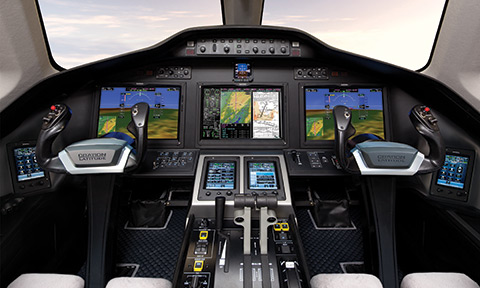For those that are considering flying as a career path, there are a few different options to choose from, each of which comes with its own benefits. Tibor Farkas, a local pilot that’s flown both private corporate gigs and for airlines, walked us through the advantages and disadvantages of each.
As far as scheduling is concerned, Tibor said airlines win by a landslide. As a private pilot, you often have to be available at the drop of a hat. As an airline pilot, you get your schedule weeks in advance and have the opportunity to drop and pick up flights at will.
“Airline pilot times 25,” Tibor said. “This is just my opinion, and there are some corporate jobs that are better than flying for major airlines, but there are maybe 100 of them in the country, and it might be flying for Coca-Cola, being a corporate pilot for Ford Motor Company, something like that. Even then, when Ford and GM ran into their issues, they shed their entire corporate flight departments that have been around for 40 years.”
While airlines can certainly experience their own financial and structural woes, flying is how they make their money, so pilots are typically safe. For a company like Coca-Cola or Ford, however, the flight department can be low on the totem pole.
[ulp id=’BE6pmlq8yQI913DS’]
“The flight department is far down the chain, so if there is a problem with the company structurally, the flight department is always the first to go,” Tibor said.
From the outside looking in, private pilot gigs seem pretty sweet, allowing you to stay overnight in places like Cabo and the Bahamas if you find the right aircraft owners, but Tibor said it isn’t all it’s cracked up to be. While the operator may be on the hook for your hotel if it’s a one- or two-night stay, cost is always at the forefront. If it’s cheaper to send you home on a commercial flight than it is to pay for your room and board, they’ll simply send you home for the week.
“Generally, it’s a cost thing,” Tibor said. “If it’s just an overnight trip, then yeah, they’ll probably pay for your hotel to stay with the airplane, but let’s look at it practically. If a hotel and meals are more expensive than a round-trip airline ticket to go back to the base, then they’re generally going to go with the least expensive option.”
As far as pay is concerned, both have a huge range of possibilities that depends upon the size of the aircraft, the pilot’s level of experience, and the pilot’s responsibilities. For example, a private pilot’s pay could rival an airline pilot’s pay, but it often requires the pilot to take on more responsibilities than he or she would with an airline or other commercial gig.
“With the corporate, you might be taking on other responsibilities that are taken care of by other individuals at the airline, like dispatching yourself, catering, fueling the airplane sometimes, watching the airplane, setting up maintenance scheduling and stuff,” Tibor said.
If you fly your own plane, however, flying as a private pilot as opposed to jumping on a commercial flight has lots of advantages, particularly on shorter trips. We asked a group of local pilots which they preferred, and nearly all of them chose GA over commercial, unless the trip happened to be a long one over an ocean or through a spell of bad weather.
“600 nautical miles or less, it’s GA no questions asked,” one pilot said. “Austin to New York is hard to justify via GA.”
The advantage we heard most often was not having to deal with TSA. As a private pilot, you get to completely skip the wait at airport security, which means you can also bring pretty much anything you want. Many local pilots mentioned being able to bring their guns and ammo with them, while some enjoy the perk of being able to sit with their dog.
“I get all commercial travel paid for by travel points, but the royal hassle of TSA and all the wait time at both ends each way, I’d sometimes pay twice or three times as much to take a plane and go on my own schedule,” another pilot said.
The wait times bring up another advantage that GA has over commercial, which is simply speed. For longer trips, the speed of airlines and other commercial aircraft can make up for wait times, but for trips under 1,000 miles, according to one pilot, GA is almost always faster.
Another advantage brought to our attention was the availability of more airports in what would otherwise be difficult or impossible to reach via commercial travel.
“One trip we flew Lakeway – Oklahoma City – Austin – Lakeway,” one pilot said. “Picked up samples for business he could not take on airliners, conducted meeting, dropped off samples, returned home. Could Not do this via airlines.”
From what we heard during our “research,” it seems like if you’re flying for a living, commercial jobs, particularly with major airlines, have quite a few advantages over flying GA. If you’re flying for yourself, however, the conveniences that GA offers often make it worth the cost.

